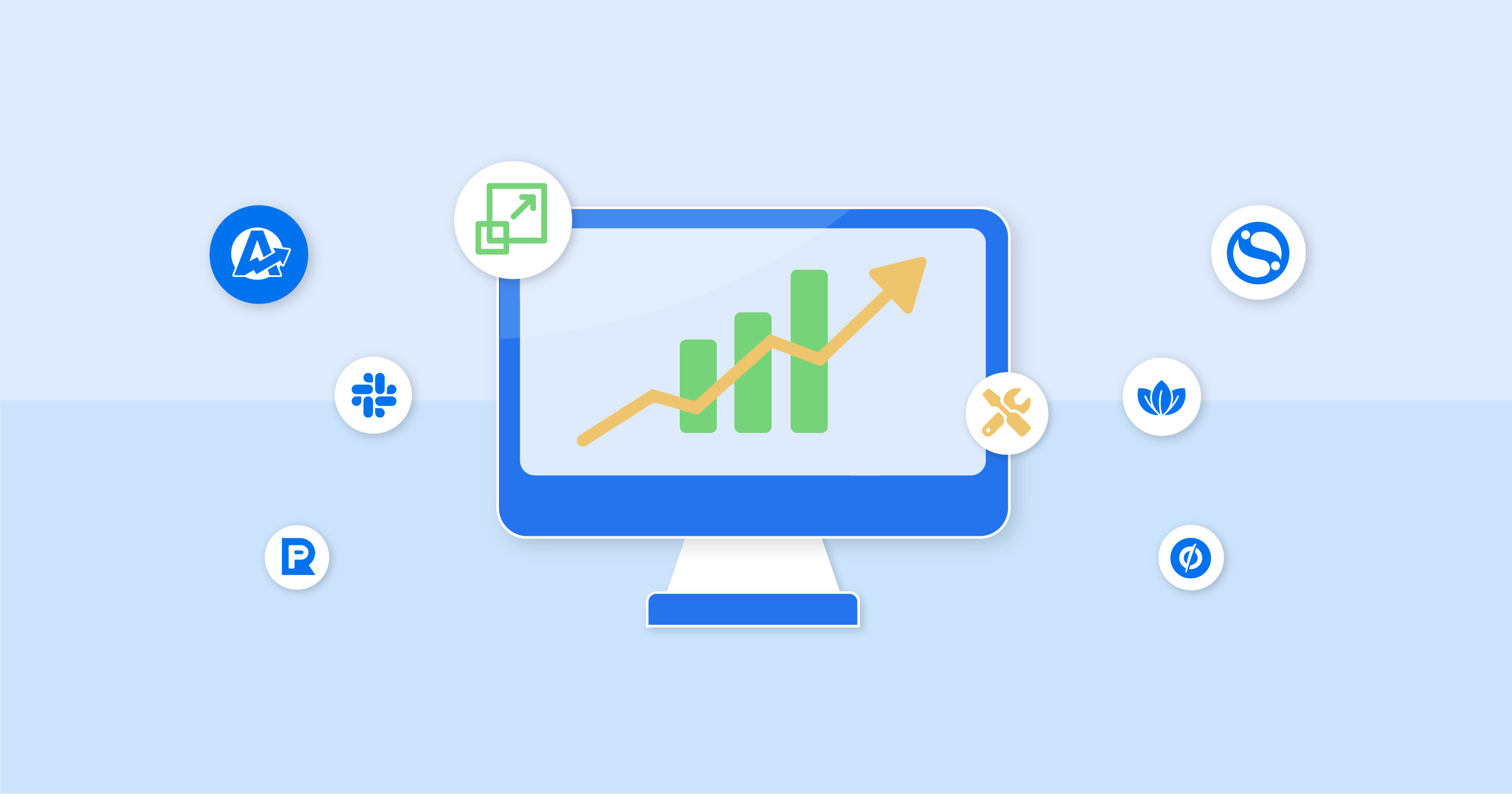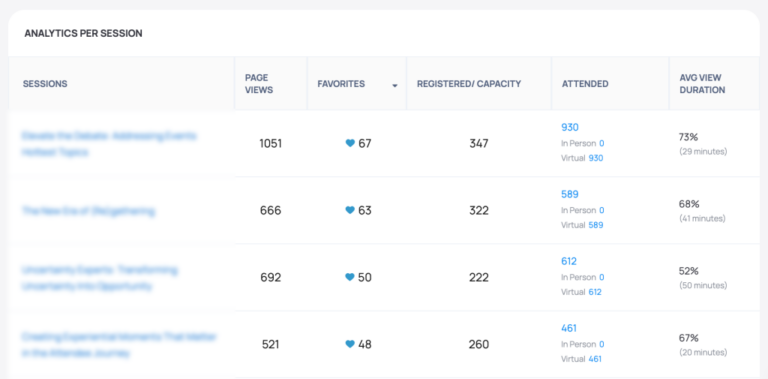Events are a powerful tool for businesses to engage with their audience, build relationships, and drive growth. However, the true impact of an event lies in effectively measuring its success. Understanding how to measure event success allows businesses to assess the return on investment, evaluate attendee satisfaction, and refine future event strategies.
In this blog, we delve into the key strategies and metrics that can help you measure the success of your events with precision. From tracking attendance numbers and collecting feedback to analyzing social media engagement and lead generation, we provide a comprehensive guide to ensure you garner actionable insights from your events.
Join us on this journey to unlock the secrets of measuring event success and take your event planning to the next level!
Introduction: Understanding the Importance of Measuring Event Success
In the dynamic landscape of event planning, understanding how to measure event success has become crucial for businesses looking to optimize their return on investment. By accurately tracking key performance indicators (KPIs) and analyzing data, event organizers can gain valuable insights to enhance future events and demonstrate the impact of their efforts.
The Significance of Data Analysis
Event success is no longer solely determined by the number of attendees but rather by a comprehensive analysis of various metrics ranging from attendee engagement to post-event feedback. Utilizing data not only provides a factual representation of the event’s success but also helps in making informed decisions for future events.
Key Metrics for Measuring Event Success
Tracking metrics such as attendee satisfaction levels, lead generation, and social media engagement can offer valuable insights into the effectiveness of an event. By setting clear KPIs and utilizing tools for data collection, event planners can evaluate the success of their strategies.

Setting Clear Objectives for Your Events
Setting clear objectives for your events is crucial to measuring their success effectively. By defining specific goals, you can track progress and determine whether your event met expectations.
Identify Key Performance Indicators (KPIs)
Determine the KPIs that align with your event objectives. Whether it’s attendance numbers, social media engagement, or lead generation, setting measurable KPIs is essential.
SMART Goals Framework
Utilize the SMART criteria for goal-setting: Specific, Measurable, Achievable, Relevant, and Time-bound. This framework helps in setting objectives that are clear and actionable.
Track Progress During and After the Event
Establish methods to monitor progress throughout the event. Post-event evaluations and surveys can provide valuable insights into whether your objectives were met.
Choosing Key Performance Indicators (KPIs) for Evaluation
When evaluating the success of an event, selecting the right Key Performance Indicators (KPIs) is crucial. KPIs are specific metrics that help measure the effectiveness and impact of your event. To ensure accurate assessment, it’s essential to choose KPIs that align with your event objectives and goals.
Relevant KPIs
Determine which metrics are most relevant to your event’s purpose. Common event KPIs include attendance numbers, engagement rates, attendee satisfaction scores, social media reach, and lead generation.
When selecting KPIs, consider both quantitative data, such as registration numbers, and qualitative data, like feedback from attendees. Remember, KPIs should be measurable, specific, achievable, relevant, and time-bound (SMART).
Setting Targets
Establish clear targets for each KPI to track progress and success. Define realistic goals based on past event data, industry benchmarks, and the event’s objectives. Setting targets provides a benchmark for performance evaluation.
- Example 1: Increase attendee satisfaction score by 15% compared to the last event.
- Example 2: Achieve a 20% growth in social media engagement.
Collecting and Analyzing Data During and After Events
One of the most crucial aspects of measuring event success effectively is by collecting and analyzing data during and after the event. This process helps organizers understand the impact and outcomes of their events, allowing them to make informed decisions for future events.
Real-time Data Collection
During the event, it is essential to gather real-time data through various sources such as event apps, social media platforms, and onsite surveys. This data can provide insights into attendee engagement, satisfaction levels, and areas for improvement. Utilizing technology for data collection ensures accuracy and efficiency.
Post-Event Analysis
After the event, conducting a comprehensive analysis of the collected data is paramount. This includes examining key metrics like attendance numbers, session popularity, feedback responses, and social media mentions. Identifying trends and patterns can help in assessing the overall success of the event.
Interpreting Results and Making Data-Driven Decisions
When it comes to how to measure event success, interpreting results and making data-driven decisions are crucial steps for event organizers. Analyzing real-time data from events provides valuable insights that can guide future planning and strategy.
Utilizing Key Performance Indicators
Identifying and tracking relevant key performance indicators (KPIs) can help measure the success of an event accurately. KPIs can include attendance numbers, engagement rates, conversion rates, and social media impressions.
Implementing A/B Testing
By conducting A/B testing on various event elements such as marketing strategies, agendas, or session formats, organizers can gather data-driven insights on what resonates best with attendees, leading to more successful events.
Implementing Changes for Future Success
When it comes to measuring event success, it’s crucial to implement changes based on the gathered data for future events. By analyzing the results, event organizers can identify areas that need improvement and tailor strategies for enhanced success in upcoming events.
Adapting Marketing Strategies
To increase event success, marketers can focus on enhancing their promotional efforts through targeted digital campaigns. Utilize sophisticated data analytics tools to identify the nmost effective promotional channels for reaching the target audience./p>
Enhancing Attendee Experience
Improving attendee experience is key to ensuring the success of future events. By gathering feedback and implementing innovative solutions, organizers can create events that resonate with participants. This can lead to increased engagement and positive word-of-mouth promotion, ultimately boosting event success.
Frequently Asked Questions
-
- Why is measuring event success important?
- Measuring event success is important as it helps in determining the effectiveness of the event, identifying areas of improvement, and evaluating the return on investment (ROI) for the event.
-
- What are some key metrics to measure event success?
- Some key metrics to measure event success include attendance numbers, engagement levels, leads generated, social media reach, feedback from attendees, and the overall impact on business goals.
-
- How can I track event success?
- You can track event success by using tools like event management software, registration analytics, attendee surveys, social media analytics, and post-event evaluations to gather data and insights for measuring success.
-
- What strategies can help in unlocking event success?
- Strategies such as setting clear objectives, defining key performance indicators (KPIs), engaging with attendees before, during, and after the event, leveraging technology for data collection, and analyzing feedback can help in unlocking event success.
-
- How do I improve event success for future events?
- To improve event success for future events, you can use the data and insights from past events to make informed decisions, implement changes based on feedback, experiment with new ideas, and continuously refine your event strategy.
Unlocking Event Success: A Comprehensive Guide to Measure event success
In conclusion, measuring event success is an essential aspect of event planning that can significantly impact future strategies and outcomes. By utilizing key performance indicators (KPIs) and leveraging tools such as surveys, analytics, and attendee feedback, event planners can effectively assess the success of their events. Remember, success metrics should align with the event goals and objectives set at the outset. Tracking metrics such as attendance rates, engagement levels, and ROI can provide valuable insights that inform decision-making and improve future events. Implementing a robust measurement strategy will not only demonstrate the impact of your events but also help you fine-tune your approach for even greater success in the future.
In conclusion, measuring event success is an essential aspect of event planning that can significantly impact future strategies and outcomes. By utilizing key performance indicators (KPIs) and leveraging tools such as surveys, analytics, and attendee feedback, event planners can effectively assess the success of their events. Remember, success metrics should align with the event goals and objectives set at the outset. Tracking metrics such as attendance rates, engagement levels, and ROI can provide valuable insights that inform decision-making and improve future events. Implementing a robust measurement strategy will not only demonstrate the impact of your events but also help you fine-tune your approach for even greater success in the future.



